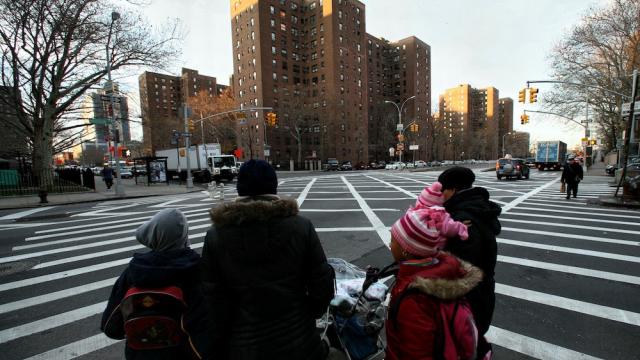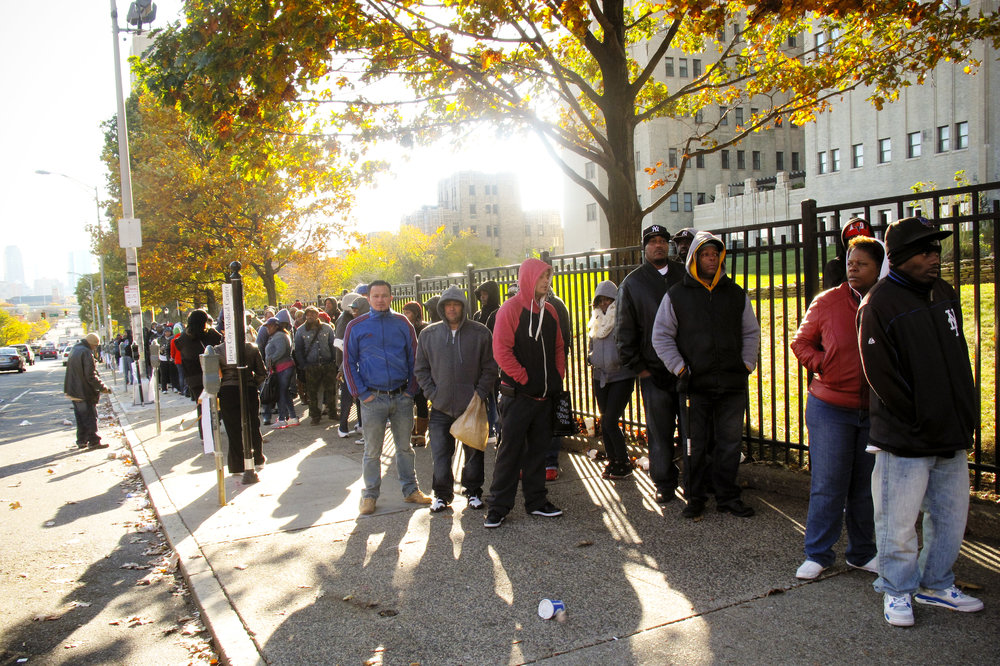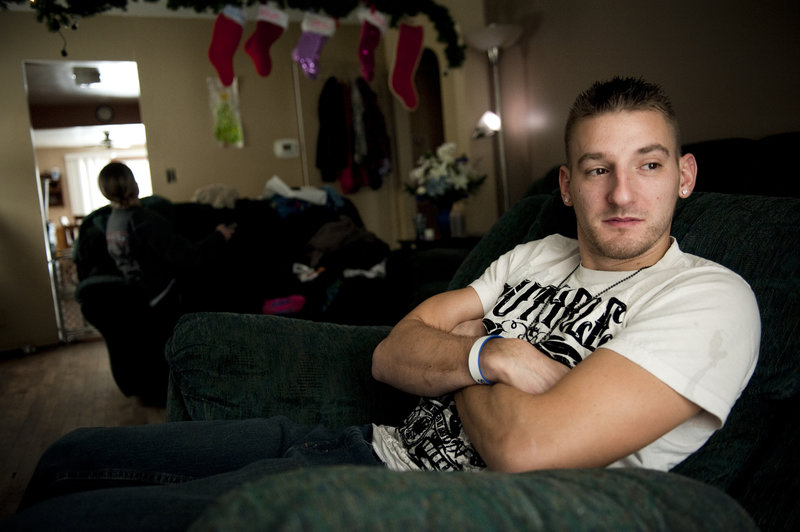
This is the second installment in a two-part series. Read the first part here.
The German playwright Bertolt Brecht said many things about the law as it relates to capitalism, but his most memorable quote was from The Threepenny Opera: “The law was made for one thing alone," he wrote, "for the exploitation of those who don't understand it.”
In my previous post, I explained that I had asked a cross-section of my friends and colleagues—lawyers, activists, people who’ve had brushes with the law, and people who’ve fought for changes in the law—what parts of the legal system were uniquely bad for poor people. We learned, among other things, about how court assessment fees, immigration law and even the attitude of judges towards poor and working people in court, all make the legal system a nightmare for the economically disadvantaged. Here is the rest of the list:
18. Suspended drivers licenses
As mentioned in other items, losing your license might mean losing your job, and it costs hundreds of dollars to get through the process of getting it back.
19. Drug laws
Simply put, rich people can get as high as shit with little legal risk. They can smoke, snort, or shoot whatever they want in the privacy of their condos, large suburban estates, or high rise apartments.
20. Income taxes
Our personal income tax system is regressive even if it tries not to be. The wealthiest people can dodge paying income taxes entirely, and successful business owners can treat “income” as capital gains. But wage workers enjoy no loopholes, and low-income independent contractors in the new, fragmented economy are choked every year by steep taxation.
21. Child abuse, neglect and unification proceedings
As Dawn Post reported back in 2014, “Children are just as likely to be abused or neglected in wealthy homes as in poor ones. However, wealthier white families are simply not under the same scrutiny that brings families of color of low socioeconomic status to the attention of child welfare authorities.” And court decisions involving neglect and the revocation or restoration of parental rights often deploy classist and racist assumptions about parental fitness. Of course, if lawmakers were truly concerned that poor and disadvantaged families abuse or neglect their kids, they would prioritize anti-poverty policies.
22. “Sin” taxes
If you want people to quit smoking or excessively drinking, the theory goes, increase taxes on cigarettes and liquor. And it may work, but in the meantime, untreated addiction means poor people will pay even more of their income for the sinful substances, and treating addiction requires money they don’t have (while conservatives de-fund programs that might make a difference).
23. Laws requiring college degrees for childcare and other workers
Defenders of this practice say it guarantees workers will receive good pay and protections. Even if that’s true, skilled workers who are poor will have to fall into the cycle of student debt that might limit their income for decades, and some workers will be priced out altogether. Why is it that even when our system tries to do something good, poor people get hurt in the shuffle?
24. Property tax-based school funding
Shockingly enough, when you use your community’s property tax base as the primary source of funding for area schools, you get an education system that parallels America’s largely un-mobile class system.
25. Housing: “one family” and "one per room" laws
Municipal codes and zoning restrictions requiring only one family per house or only one child per room aren’t just culturally insensitive; they also unnecessarily drive up housing costs. There’s no reason why a normal or large-sized house ought to be available for one family of six, but not to two families of three. Property elitism and anti-immigrant prejudice, not safety or security, are what drive these laws.
26. Truancy laws
Shockingly, if poverty sometimes makes it less likely a kid will show up for school, punishing the poor parents only risks worsening it.
27. Drug testing aid recipients
It seems like we hear annually about some state’s attempts to kick people off public assistance if they test positive for illegal drugs. In each instance, the programs fail to catch anyone and in the meantime, wealthier people can get stoned or hopped up to their unhealthy heart’s content.
28. Laws against sex work
Irrespective on one’s position on the illegality of sex work, poor people will inevitably participate in illegal work cultures when better jobs aren’t available. Criminalizing that activity means cops will disproportionately arrest (and harass, and exploit, and commit physical violence against) poor participants in the activity. This is also a good example of how economic inequality complicates our ability to evaluate public policies about sex and exploitation.
29. Voter ID laws
Thirty-three states have some kind of voter identification requirements. No credible evidence supports their existence, and there is considerable evidence that they disproportionately deter poor people from voting—an example of how liberal political rights are circumvented by material circumstances.
30. Laws against feeding homeless people
While concern for foodborne illness is legitimate, there are ways to ensure monitoring of food safety practices and still allow groups to feed leftover or freshly prepared food to homeless people in public spaces.
31. Asset forfeiture laws
A particularly nefarious and increasingly controversial law enforcement practice, civil judicial forfeiture, or civil seizure, allows law enforcement officers to take assets from those suspected of crimes without ever having to charge or convict the owners. In 2014, more property was taken from American citizens by law enforcement than by thieves. For poor people, those lacking bank accounts, or those reliant on the small properties they've managed to acquire after saving for years, civil forfeiture is simply a nightmare--and probably unconstitutional.
32. Fines for crimes – and escalation of those fines for nonpayment
Fines are imposed whether you’re incarcerated or not, whether you can pay them or not, at 12 percent or more interest per year, and can get you put in (or back in) jail, because failure to keep up with fine payments is a probation violation. The Obama Justice Department instructed states to stop jailing people for nonpayment, but it seems unlikely the Trump administration will continue that position.
33. Laws allowing discrimination against the formerly incarcerated
Making it hard for a convicted felon to get a job makes zero policy sense, adds insult to injury, and produces socially toxic impacts that fall disproportionately on the poor. On those rare occasions when the wealthy go to prison, they have a much softer landing when they get out; somebody’s daddy’s gonna hire them for something, after all.
34. THE LEGAL SYSTEM AS A WHOLE
Yeah, it was kind of a trick question: Because the quality and amount of legal access we get depends on how much we can pay, our entire legal system is structurally classist, and poor people are systemically treated less justly, less fairly, more harshly than the rich—even when good people in the legal system try to prevent that.
Stephen Papa was sentenced to 22 days in jail, not because of his original offense — destruction of property and resisting arrest after he got drunk with friends one day — but because he couldn't pay the fines and court fees. At his hearing, the judge asked for a $50 first installment on his $2,600 in court debt, but Papa, who was homeless and on the verge of starting a new job, had only $25. - Grant Hindsley for NPR
3 WAYS TO SHOW YOUR SUPPORT
- Log in to post comments



















